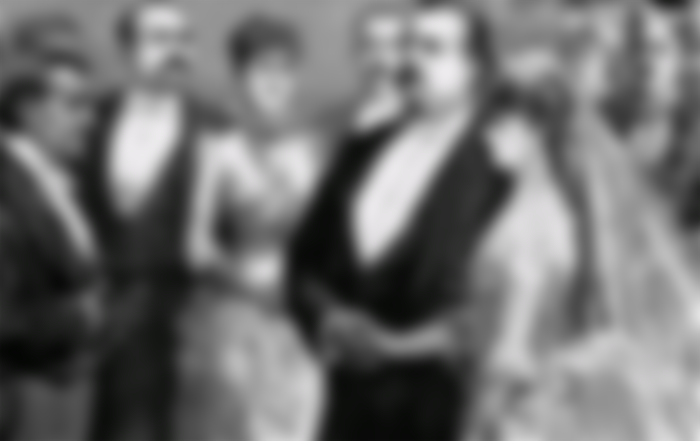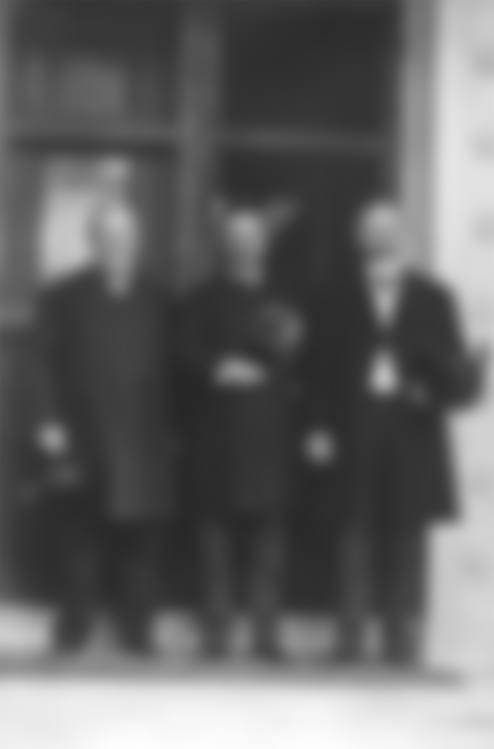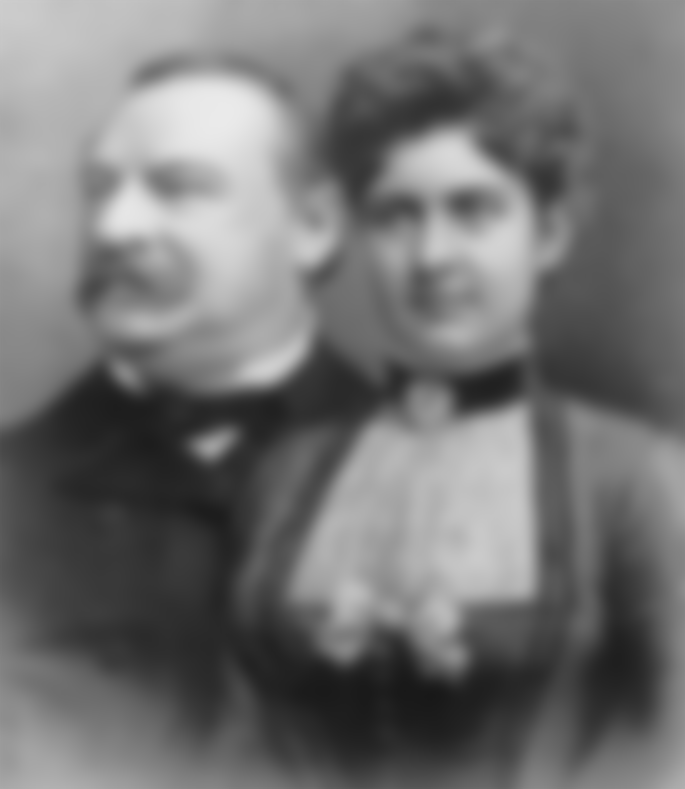The first and only presidential wedding at the White House (1886)
On June 2, 1886, for the first and only time in history, the American president was married in the White House. The wedding took place in the Blue Room on the first floor of the White House. This room has an oval shape and a view of the lawn in front of the house, through the famous semicircular porch with pillars by which the White House is recognizable in photographs.


The president who got married at the time was named Grover Cleveland and he was already 49 years old. Interestingly, his bride - Frances Folsom - was only 21 years old at the time of the wedding. Indeed, with this wedding, she became the youngest first lady in U.S. history. President Cleveland was a bachelor until then, so in the earlier period of his term, the function of first lady was performed by his sister.

Cleveland grew up in a strict, humble home. As the minister's son and the fifth of nine children, he had a religious and principled upbringing with little luxury.
When Grover was 4, the Reverend Cleveland moved his family to Fayetteville, NY. Grover attended local schools there and many described it as "full fun". He enjoyed outdoor sports, especially fishing. He was preparing to enroll at Hamilton College, but his father’s death in 1853 changed these plans forever. Instead of attending college, Cleveland went to work at age 16 to help support his mother and siblings.
Because he needed a significant income, he traveled west in 1855. He stopped in Buffalo, NY, took up a position with his uncle and later served as a clerk at a local law firm. In 1859, Cleveland was admitted to the Bar, fulfilling his long-held goal of becoming a lawyer.
Policy

Cleveland remained in Buffalo where he practiced law and served as electoral supervisor, assistant district attorney, Erie county sheriff, and finally mayor. His political wealth continued to grow as he rose from mayor of Buffalo (1882) to governor of New York (1883) to president of the United States (1885) in just three and a half years.
During his political career, Cleveland became known for his honesty, integrity and impartiality. As mayor, he vetoed a decision that would allow for the unscrupulous awarding of city contracts. As governor, he vetoed a politically popular reduction in public transportation prices and refused political booty to party officials at Tammany Hall, the headquarters of the Democratic Party in New York City.
His presidency was no less controversial. He was a strong reformer and defender of anti-imperialism, tariff reform and the gold standard. He vetoed false pension claims for civil war veterans, saying: "I considered the republican pension list an honorary role."
He also signed the Interstate Trade Act, creating the first state regulatory agency and establishing the United States Department of Labor. The latter was a means of arbitration in the often violent labor disputes that arose during the late 19th century.
Although Cleveland won the election in his candidacy for re-election in 1888, he lost electoral votes. He ran again in 1892 and won, becoming the only president to serve two consecutive terms. He will also be the only Democrat elected president between 1861 and 1912.
During his second term, Cleveland repealed the Sherman Silver Purchase Act, returning the nation to the gold standard. He helped resolve between Britain and Venezuela and between Spain and Cuba, thus avoiding conflict and protecting American interests. He also recruited the military during the Pullman Palace Emperor's strike in 1894 to maintain civil order and ensure continuous rail transportation of goods and services, including the delivery of American mail. "If it takes the entire United States Army and Navy to deliver a postcard to Chicago," he thundered, "that ticket will be delivered."
This unwavering sincerity has often created enemies in both political parties and among special interest groups. Still, Cleveland was adamant. It was this very steady but resilient approach to life that would define him both as a man and as a president.
Grover Cleveland met his future bride around the time she was born (he was already 27 at the time). Namely, he was a close friend of her father for many years. He even bought a pram for little Frances as a baby, and later gave it to her as she grew up. When she was 11, her father died, so Cleveland cared for her as the only child of a deceased friend (he was also the executor of her father’s will).They had five children.

Cleveland is considered by historians to be one of the better American presidents. During his tenure, he assisted in the beginning of federal trade regulation. Furthermore, he fought against what he saw as private misuse of federal money. He was known for acting on his own conscience despite opposition within his party.




